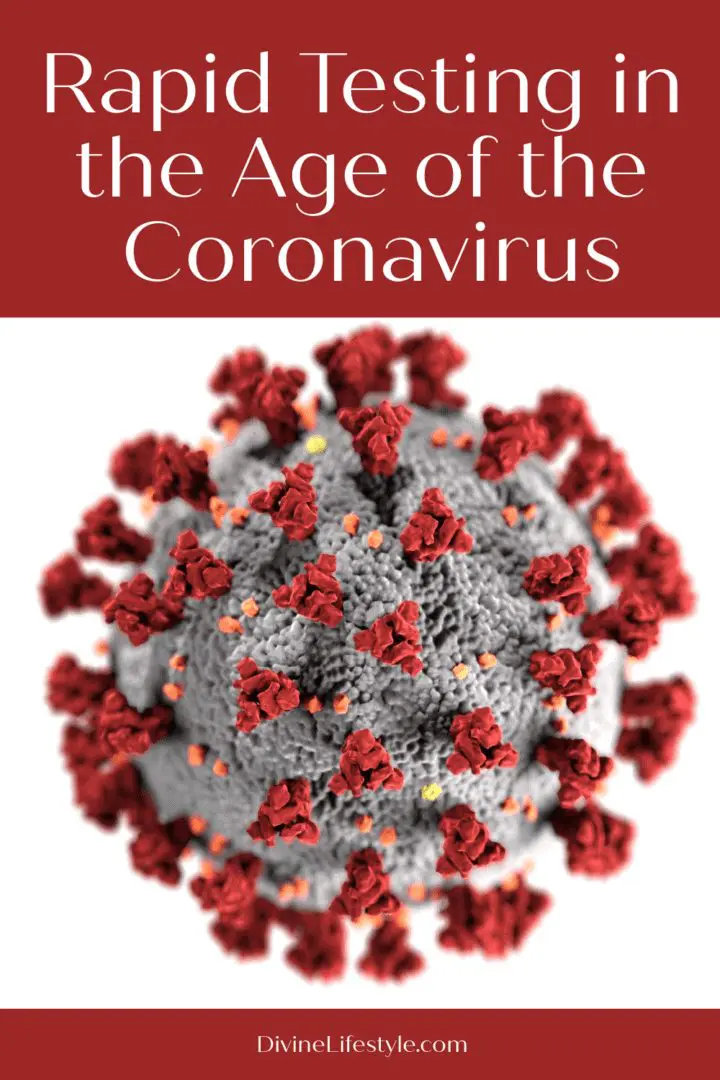Best Way To Use CBD
Best Way To Use CBD CBD (Cannabidiol) is a component of cannabis that occurs naturally among its chemical components. It does not intoxicate individuals who use it and has proven to be helpful with...
The new novel coronavirus has spread rapidly and has caused a global pandemic. It is the deadliest pandemic since the flu pandemic of 1918, and as cases are continuously rising, there are specific measures such as handwashing, wearing masks, social distancing, and testing, which are being required to greatly reduce the spread of COVID-19. Testing is of the utmost importance because it is the one measure that can determine who has the virus and who does not. The more tests that are taken the better. Testing needs to be fast, accurate, and simple enough to be run at establishments such as airports, schools, restaurants, and other places in which large crowds gather. Rapid tests can be used to quickly determine who has an infection before they are allowed to enter, which would reduce the chance of spreading the virus. We hope that you find this Rapid Testing in the Age of the Coronavirus post valuable

According to the World Health Organization (WHO), testing is very effective; however, testing comes with several challenges, such as giving false positive or negative results or long wait times to receive test results. Waiting days or weeks for test results increases the chances of those infected with COVID-19, unknowingly spreading the virus to others. Unlike the molecular diagnostic test, which must be sent to a lab for analysis, antigen, or rapid diagnostic tests, involve comprehensive blood testing which can be completed at the point of care (in clinics, doctor’s offices, emergency rooms, etc.) with results in 15 minutes to an hour.
Types of molecular tests include polymerase chain reaction (PCR) tests, viral RNA tests, and nucleic acid tests, which can detect an active infection of COVID-19. The majority of COVID-19 tests are PCR tests. Molecular tests are completed at hospitals or clinics with a nasal or throat swab or by testing saliva or other bodily fluids that detect genetic material resulting from the virus. Nasal swabs are known for the high accuracy of test results. Test results are usually ready in 1-3 days but have taken over a week, depending on how quickly labs can provide the results.
New advances in testing technology mean that you don't have to sacrifice accuracy for time. Select testing sites and clinics now offer rapid PCR tests that can be processed onsite instead of at a lab, returning results within 30 minutes. You can get a rapid PCR test in Raleigh and other US cities at select testing sites and clinics, or you can get this test at home with a service like Drip Hydration. In-home tests can help you do your part to prevent the spread of the virus. They also save you the time and hassle of getting tested either at a center or with a DIY kit.
Antigen, or rapid diagnostic tests, identify COVID-19 in mid-infection by identifying protein fragments (antigens) from the virus. They work best when tested early in infected individuals when the viral load is at its highest (usually within five to seven days). These tests are also done through nasal or throat swabs either at a hospital or doctor’s office. Eventually, these tests will be able to be conducted at home. Although antigen tests are faster and less expensive than molecular tests, they have a high amount of false-negative or false-positive results.
False-negative results are test results that indicate a person is not infected when they are. False-positive results are test results that indicate a person is infected when they are not. These false test results are why antigen tests are not favored but are authorized by the FDA. The accuracy of tests depends on how early the infected individual was tested, the concentration of virus in the specimen, the condition of the specimen collected, how the specimen is handled, and the exact formulation of reagents within the test kits.
Many experts argue that rapid tests are better than none and are improving as the pandemic goes on. Better tests are needed, and those tests need to be widely available to medical professionals and to the public. Many vendors or test developers are responding to the growing need for more rapid tests as cases continue to surge.
Another type of rapid diagnostic test is the serology or antibody test. This test tells if an individual has had COVID-19 by testing their blood for antibodies. These antibodies form within days or weeks after a person has had an infection. Antibody tests help in revealing how the prevalent infection has been within a community, whether an individual has had COVID-19, and for information needed in creating vaccines.
As each day passes and the world learns to cope with the coronavirus pandemic, rapid testing will increasingly become a critical and preferable measure in combating the spread of COVID-19. They can be the key to the reopening of theme parks, movies, concerts, and other places where large crowds can gather, which can allow the world to return to a new normal. We hope that you found this Rapid Testing in the Age of the Coronavirus post valuable. Good luck!